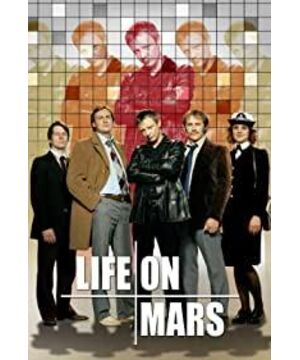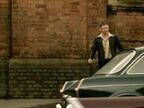First of all, we cannot discuss the question of reality and imaginary authenticity, because it is not at all explorable.
From Sam's skepticism of 1973, to being out of place, to getting used to life there, every episode sees his ideological struggle. What makes LOM better than other types of crime/detection dramas is that it never catches the eye with exaggerated scenes, complicated detective processes, but focuses on social issues (whether it's 1973 or 2006, whether it's football violence or police corruption).
About the last episode:
In fact, Sam chose to ignore his companions at first, preferring to treat them as a tumor in his brain, and let them die in exchange for the opportunity to return to his hometown, which surprised me more than the ending. Brotherhood is not self-interested, it's not Sam's style; but we can think it's because Sam's desire is too strong to go the way of paranoia.
On the other hand, I'm more inclined to let the whole show end at the end of season one, when Sam finds out about his father's secret.
And the ending, in fact, when Sam Tyler jumped downstairs, was unexpected on the one hand, but expected on the other hand. How much our Sam yearns to go back to 2006, from his first episode of car accident back to (or to) 1973 he has expressed (spoken) countless times to return to his original world and live his original life; However, after he really went back, he found that his life was not there at all, and what 2006 could bring him was nothingness. The bartender said: When you feel alive, you are alive. - In other words, Sam didn't think he was alive in 2006 at all.
The stress and world-weariness all exploded when Sam ran up to the top floor; when Life on Mars sounded, looking at the modern buildings around him, Sam smiled and started walking, then trotted, then accelerated, and finally jumped down. What I saw was warmth and tranquility - Sam was finally not deceived by the vain pursuit of 2006, he still saw the truth, and saw the true side of his heart.
Some people say that it would be more perfect if the film ended with a black screen after Sam jumped, without going back to 1973; but wouldn't that be overly optimistic and leave too much room for imagination? Yes, going back to 1973 does have the suspicion of a dog tail, but this scene brings out my favorite plot: at the end in Gene Hunt's car, the doctor's nurse's words are on the radio, and Sam has switched the channel, so And of course David Bowie's Life on Mars blared on the radio. Wasn't he banging on the radio frantically, eager to hear those words from 2006?
Human life is actually meaningless, all we have to do is to extract and create some laws from the chaos. And we actually can't even do that. So, the world-weary mood jumped out here; it's a pity that people on earth don't actually have a 1973 that can settle down, but unfortunately we don't have life on mars.
http://stillandall.blogbus.com/logs/20138061.html
View more about Life on Mars reviews











